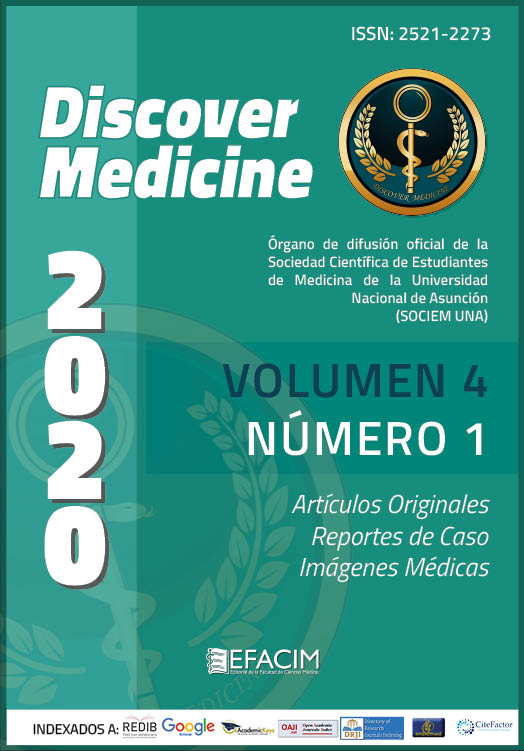Abstract
Background: Self-medication is a frequent public health problem in the student population, which occurs above all in medical students, given their greater knowledge in pharmacology. As they are future prescribers, it is important to establish the magnitude of the problem in this population. The objective was to determine the pattern of self-medication and associated factors in Medicine students of the National University of Asunción.
Methods: Descriptive observational study, cross section, non-probability sampling for convenience. It spanned from April 15 to August 7, 2019. The sample was 221 students from the Faculty of Medical Sciences (medicine) of the National University of Asunción. For the statistical analysis, the samples were analyzed in the PSPP program and the results were presented in tables and graphs for greater compression.
Results: The mean age was 24.19 ± 3.4 years (range: 19-42), 58.8% female. 71% consumed medications in the last two weeks, 88% in the last three months. 63% would consult a doctor before consuming any type of drugs, 30% would not. Analgesics were the most consumed (48.4%). 29.9% do not see a medical consultation necessary for the consumption of drugs. Given the persistence of symptoms, 49.3% would go to the doctor to consult. They recognize that self-medication itself is a risky practice (96%).
Conclusion: Medicine students, due to their pharmacological knowledge, present a higher self-medication index, also characterized by easy access to medicines.

This work is licensed under a Creative Commons Attribution-NonCommercial-NoDerivatives 4.0 International License.
Copyright (c) 2020 Nicolás Ayala-Servín, César A. Urizar, Marcia Antonella Duré Martínez, Gabriela Benegas, David Figueredo, Jessica Espínola, Rosa Barúa, Félix González, Mauro Benítez, Moisés Mena, Carlos Santa María, Idalina Stanley
